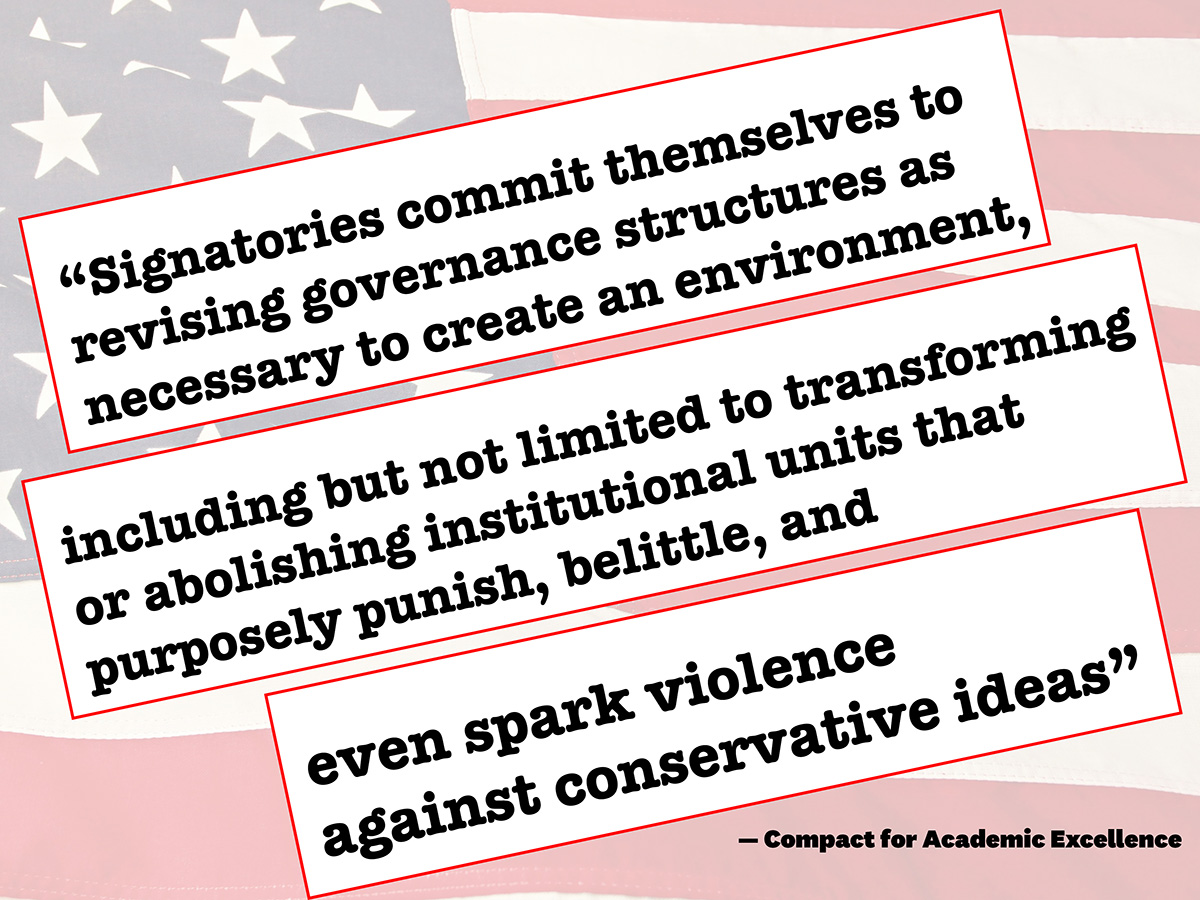By Royel M. Johnson
USC Rossier Associate Professor
As I argue in my forthcoming chapter in James A. Banks’s edited volume Standing Strong in Undemocratic Times: Supporting and Enhancing Democracy in Education (to be released at AERA 2026), we are witnessing a profound authoritarian turn in American education. This turn — marked by racial scapegoating, cultural suppression and bureaucratic coercion — seeks to strip higher education of its democratic purpose. The latest example is the so-called ‘Compact for Academic Excellence,’ an invitation from the Trump administration to nine universities, including the University of Southern California, to trade preferential access to federal funding for compliance with a troubling set of ideological demands.
Under the Compact, universities would ban consideration of race and gender in admissions and financial aid, restrict international student enrollment, suppress academic speech under the banner of “viewpoint diversity,” and effectively dismantle diversity, equity and inclusion (DEI) infrastructure deemed “ideologically coercive.” These measures are presented as neutral and merit-based, but their intent is quite obviously political. They aim to recast universities as obedient state actors rather than autonomous spaces for critical inquiry and civic development.
Authoritarianism in Academic Clothing
In my forthcoming chapter of the volume, which is celebrating the 30th anniversary of this storied multicultural education series for Teachers College Press, I describe how authoritarian movements rarely announce themselves solely through violence. Indeed, they quite often leverage ordinary bureaucratic mechanisms that, at first glance, appear to be administrative reforms. Political scientist Erica Frantz reminds us that modern autocrats often preserve the façade of democracy while hollowing out its institutions from within. The Compact exemplifies this danger: it dresses coercion in the language of excellence, compliance and efficiency.
In that chapter, I identify four strategies through which authoritarianism often takes hold in education — control of knowledge, legal manipulation, delegitimization of public institutions and the suppression of dissent. The Compact does not represent all four equally, nor does it need to. What makes it alarming is the degree to which it echoes several of these warning signs. Its insistence on government-defined “neutrality,” its threat to withhold funding for noncompliance, and its targeting of DEI infrastructure under the pretense of fairness all point toward the bureaucratic coercion and ideological control that accompany democratic erosion.
Seen through this lens, the Compact is less a policy proposal than a political signal. It frames higher education as ideologically suspect, positions federal power as the arbiter of acceptable thought, and invites institutions to prove their loyalty through silence. History offers too many reminders of where such tests of loyalty lead.
A Test of Fiduciary and Moral Courage
For boards of trustees and senior leaders, this is not just a political issue — it is a question of fiduciary duty. The responsibilities of care, loyalty and obedience require that trustees act in the university’s best interest, preserve its independence and uphold its mission. Endorsing a compact that conditions funding on ideological alignment would very clearly breach all three.
True stewardship demands courage, not compliance. It means evaluating risk not only in financial terms but in moral ones — understanding that the long-term cost of submission far outweighs any short-term funding advantage. As I note in Standing Strong in Undemocratic Times, universities are being targeted precisely because of their commitments to truth, pluralism and equity. Those commitments are among the few remaining checks on authoritarian power.
Why Resistance Matters
The danger of the Compact lies as much in what it normalizes as in what it dictates. Once universities accept that federal funding can be tied to political orthodoxy, every domain of research and teaching becomes vulnerable to similar control. Today the target is DEI; tomorrow it could be climate science, reproductive health or constitutional law.
Authoritarianism does not require mass repression to succeed. It advances through acquiescence — when fear, fatigue or pragmatism lead institutions to self-censor before they are even asked. Resistance, therefore, begins with clarity: recognizing that neutrality in the face of coercion is not virtue but surrender.
History also reminds us that resistance works. In the 1950s, faculty across the University of California refused to sign loyalty oaths that disavowed “subversive” ideas, sacrificing jobs to defend principle. Their defiance preserved the university's moral authority. Today’s educators face a different political climate but a similar test: whether to defend the university’s democratic role or reduce it to an instrument of state ideology.
Standing Strong
If higher education is to fulfill its democratic purpose, it must act with unity and resolve. Institutions should build alliances to challenge federal overreach, protect dissent, and reaffirm that DEI is central to democracy, not peripheral to it. Teaching our students to think critically, engage across difference, and pursue justice is not indoctrination — it is the very essence of democratic education.
At the Pullias Center, my colleagues and I are committed to advancing that vision through research that exposes inequities and strengthens belonging in higher education. This work is more than academic; it is an act of civic responsibility.
Just so we are clear, the Compact for Academic Excellence is not at all about excellence —it is about capitulation (I know you are tired of hearing this word, as I am). Thus, it is our responsibility to ensure that universities can remain spaces of critical thought and engines of democracy. As I often say, history will remember whether we stood firm or stood by. I pray, in the spirit of Standing Strong in Undemocratic Times, that we collectively choose to be courageous in this moment and take collective action.








